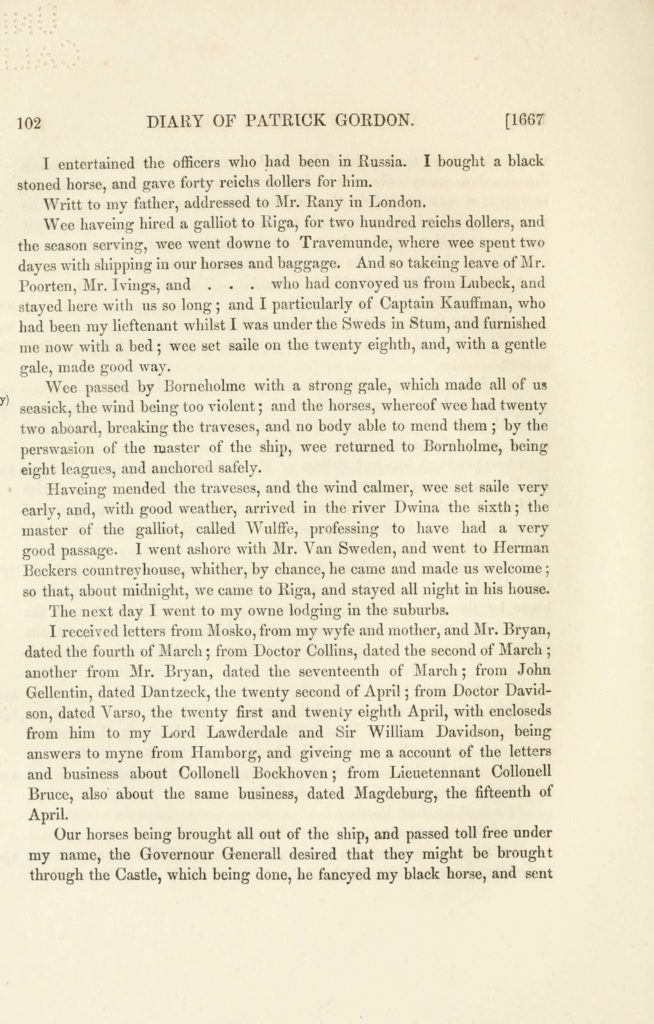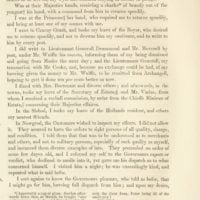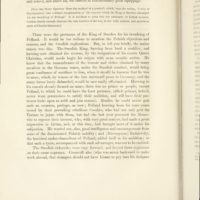
Related
![1667] DIARY OF PATRICK GORDON. lOl with their officers, from which 1 diswaded them, that the Emperour](https://cdn2.picryl.com/thumbnail/1699/12/31/1667-diary-of-patrick-gordon-lol-with-their-officers-from-which-1-diswaded-b66781-200.jpeg)
1667] DIARY OF PATRICK GORDON. lOl with their officers, from which 1 diswaded them, that the Emperour
![1667] DIARY OF PATRICK GORDON. 89 all the Russia merchants...](https://cdn2.picryl.com/thumbnail/1699/12/31/1667-diary-of-patrick-gordon-89-all-the-russia-merchants-33f5db-200.jpeg)
1667] DIARY OF PATRICK GORDON. 89 all the Russia merchants...

110 DIARY OF PATRICK GORDON. [1686 I gave up my petition
![1666] DIARY OF PATRICK GORDON. 63 noise, the Russes being unwilling to disoblige tbe Hollanders](https://cdn2.picryl.com/thumbnail/1699/12/31/1666-diary-of-patrick-gordon-63-noise-the-russes-being-unwilling-to-disoblige-aae600-200.jpeg)
1666] DIARY OF PATRICK GORDON. 63 noise, the Russes being unwilling to disoblige tbe Hollanders

20 DIARY OF PATRICK GORDON. [1655 men with a gallant traine of artillery. It was a most delighttull
![1666] DIARY OF PATRICK GORDON. 79 I did writt to Sir John Hebden](https://cdn2.picryl.com/thumbnail/1699/12/31/1666-diary-of-patrick-gordon-79-i-did-writt-to-sir-john-hebden-64f584-200.jpeg)
1666] DIARY OF PATRICK GORDON. 79 I did writt to Sir John Hebden
![1667] DIARY OF PATRICK GORDON. 103 to me, desireing me to let him have him](https://cdn2.picryl.com/thumbnail/1699/12/31/1667-diary-of-patrick-gordon-103-to-me-desireing-me-to-let-him-have-him-00516b-200.jpeg)
1667] DIARY OF PATRICK GORDON. 103 to me, desireing me to let him have him
![1667] DIARY OF PATRICK GORDON. 87 Dined by Mr. Carril his father](https://cdn2.picryl.com/thumbnail/1699/12/31/1667-diary-of-patrick-gordon-87-dined-by-mr-carril-his-father-a86887-200.jpeg)
1667] DIARY OF PATRICK GORDON. 87 Dined by Mr. Carril his father
![1666] DIARY OF PATEICK GORDON. 81 mariners aud souldlers](https://cdn2.picryl.com/thumbnail/1699/12/31/1666-diary-of-pateick-gordon-81-mariners-aud-souldlers-ea9fb7-200.jpeg)
1666] DIARY OF PATEICK GORDON. 81 mariners aud souldlers
102 DIARY OF PATRICK GORDON. [1667 I entertained the officers who had been in Russia
Summary
Passages from the diary of General Patrick Gordon of Auchleuchries : A.D. 1635-A.D. 1699"
102 DIARY OF PATRICK GORDON. [1667
I entertained the officers who had been in Russia. I bought a black
stoned horse, and gave forty reichs dollers for him.
Writt to my father, addressed to Mr. Rany in London.
Wee haveing hired a galUot to Riga, for two hundred reichs dollers, and
the season serving, wee went downe to Travemunde, where wee spent two
dayes with shipping in our horses and baggage. And so takeing leave of Mr.
Poorten, Mr. Ivings, and . . . who had convoyed us from Lubeck, and
stayed here with us so long ; and I particularly of Captain Kauffman, who
had been ray lieftenant whilst I was under the Sweds in Stum, and furnished
me now with a bed 5 wee set saile on the twenty eighth, and, with a gentle
gale, made good way.
Wee passed by Borneholme with a strong gale, which made all of us
seasick, the wind being too violent ; and the horses, whereof wee had twenty
two aboard, breaking the traveses, and no body able to mend them ; by the
perswasion of the master of the ship, wee returned to Bornholme, being
eight leagues, and anchored safely.
Haveing mended the traveses, and the wind calmer, wee set saile very
early, and, with good weather^ arrived in the river Dwina the sixth ; the
master of the galliot, called WulfFe, professing to have had a very
good passage. I went ashore with Mr. Van Sweden, and went to Herman
Beckers countrevhouse, whither, by chance, he came and made us welcome ;
so that, about midnight, we came to Riga, and stayed all night in his house.
The next day I went to my owne lodging in the suburbs.
I received letters from Mosko, from my wyfe and mother, and Mr. Bryan,
dated the fourth of March ; from Doctor Collins, dated the second of March ;
another from Mr. Bryan, dated the seventeenth of March ; from John
Gellentin, dated Dantzeck, the twenty second of April ; from Doctor David-
son, dated Varso, the twenty first and twenty eighth April, with encloseds
from him to my Lord Lawderdale and Sir William Davidson, being
answers to myne from Hamborg, and giveing me a account of the letters
and business about Collonell Bockhoven ; from Lieuetennant Collonell
Bruce, also about the same business, dated Magdeburg, the fifteenth of
April.
Our horses being brought all out of the ship, and passed toll free under
my name, the Governour Generall desired that they might be brought
through the Castle, which being done, he fancyed my black horse, and sent
Gordon was brought up and remained a lifelong Roman Catholic, at a time when the Church was being persecuted in Scotland. At age of fifteen, he entered the Jesuit college at Braunsberg, East Prussia, then part of Poland. In 1661, after many years experiences as a soldier of fortune, he joined the Russian army under Tsar Aleksei I, and in 1665 was sent on a special mission to England. After his return, he distinguished himself in several wars against the Turks and Tatars in southern Russia. In recognition of his service he was promoted to major-general in 1678, was appointed to the high command at Kiev in 1679, and in 1683 was made lieutenant-general. In 1687 and 1689 he took part in expeditions against the Tatars in the Crimea, being made a full general. Later in 1689, a revolution broke out in Moscow, and with the troops under his command, Gordon virtually decided events in favor of Peter the Great against the Regent, Tsarevna Sophia Alekseyevna. Consequently, he was for the remainder of his life in high favor with the Tsar, who confided to him the command of his capital during his absence from Russia. In 1696, Gordon's design of a "moveable rampart" played a key role in helping the Russians take Azov. One of Gordon's convinced the Tsars to establish the first Roman Catholic church and school in Muscovy, of which he remained the main benefactor and headed the Catholic community in Russia until his death. For his services his second son James, brigadier of the Russian army, was created Count of the Holy Roman Empire in 1701. At the end of his life the Tsar, who had visited Gordon frequently during his illness, was with him when he died, and with his own hands closed his eyes. General Gordon left behind him a uniquely detailed diary of his life and times, written in English. This is preserved in manuscript in the Russian State Military Archive in Moscow. Passages from the Diary of General Patrick Gordon of Auchleuchries (1635–1699) was printed, under the editorship of Joseph Robertson, for the Spalding Club, at Aberdeen, Scotland, 1859.
